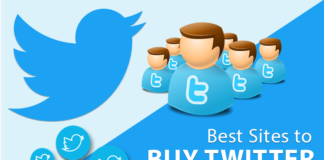Social media has changed the way we connect and communicate with each other, but with that change has come concerns about privacy, censorship, and control over our personal data. This is where a decentralized social media network comes in.
What is a Decentralized Social Media Network?
It is a decentralized social media platform that is not owned or controlled by a single entity or company. Instead, it operates on a decentralized network, where data and information is stored on a distributed ledger, such as a blockchain.
This provides users with greater control over their data and allows for a more democratic and open platform.
Why Decentralized Social Media Networks are Important
Decentralized social media networks offer several benefits over traditional, centralized social media platforms. Here are a few of the most important:
- Privacy
Decentralized networks allow for greater privacy, as users have more control over their personal data and how it is used. This is in contrast to centralized platforms, where users’ data is often sold to advertisers or used for other purposes without their consent.
- Censorship Resistance
Decentralized networks are less susceptible to censorship and control by governments or corporations. This means that users have more freedom to express their opinions and ideas without fear of censorship or repression.
Community Ownership
Decentralized social media networks are typically owned and governed by the community of users, rather than a single company. This allows for a more democratic and open platform, where decisions about the platform’s future direction are made by the community, rather than a centralized authority.
There are several decentralized social media networks that are already in operation, one of which is Blockify crypto social media platform that provides the latest information related to the crypto world.
Applications of Decentralized Social Media Networks
Decentralized social media networks have emerged as a response to the growing concerns over privacy, censorship, and control of personal data on centralized social media platforms.
A decentralized social media network offers a new way for people to connect, communicate, and share information. It has the potential to revolutionize several industries and sectors.
- Social Media
One of the most obvious applications of decentralized social media networks is as a replacement for centralized social media platforms like Facebook and Twitter. Decentralized networks offer users more control over their data, greater privacy, and freedom from censorship, making them a more attractive alternative to traditional platforms.
- Content Creation and Sharing
Decentralized social media networks are also ideal for content creation and sharing. Users can easily publish, share, and discover content, and be rewarded for their contributions. This creates a more democratized and open platform, where content is valued based on its quality and relevance, rather than the influence of a centralized authority.
- Online Marketplaces
Decentralized social media networks can also be used as online marketplaces, where users can buy and sell goods and services in a secure and transparent environment. These networks can also be used for peer-to-peer transactions, allowing for a more direct and secure way to trade goods and services.
- Gaming and Virtual Reality
Decentralized social media networks have the potential to revolutionize the gaming and virtual reality industries. They can be used to create virtual environments where users can interact with each other, participate in games, and experience immersive virtual reality experiences. This opens up new possibilities for social interaction, gaming, and entertainment.
Conclusion
A decentralized social media network offers a new and innovative way to connect and communicate with each other, while addressing many of the concerns associated with traditional, centralized social media platforms.
As technology continues to evolve and decentralized networks continue to grow in popularity, it is likely that we will see more and more people adopt these platforms as a way to connect with each other and express themselves freely and securely.


























